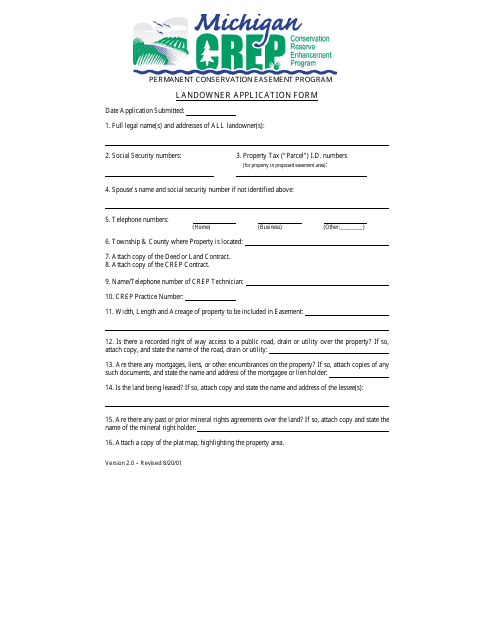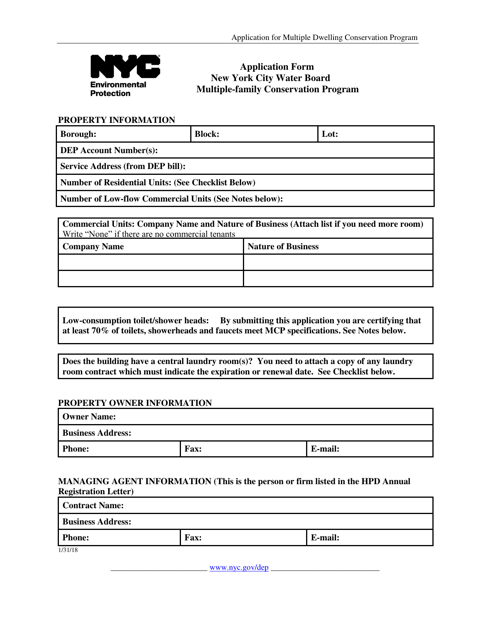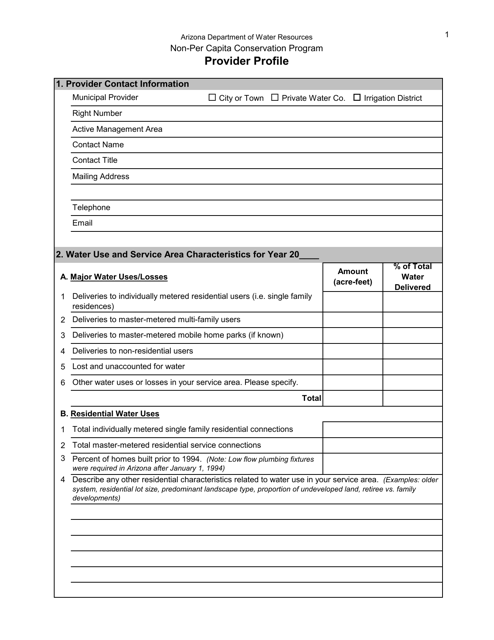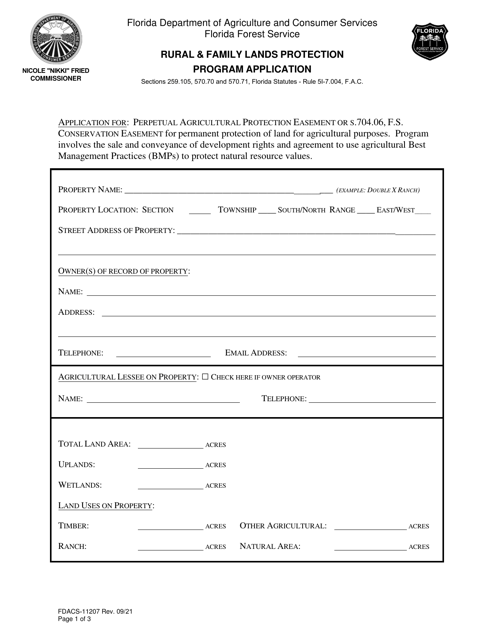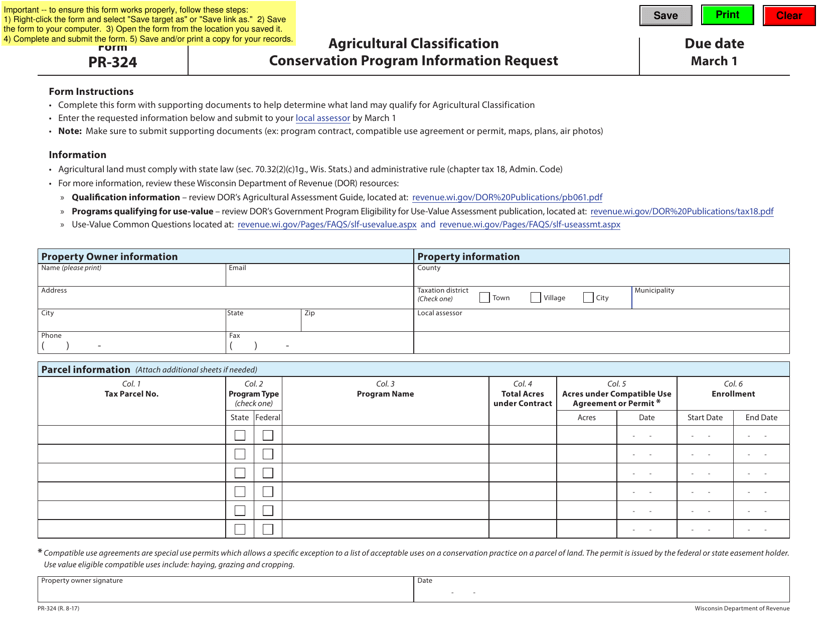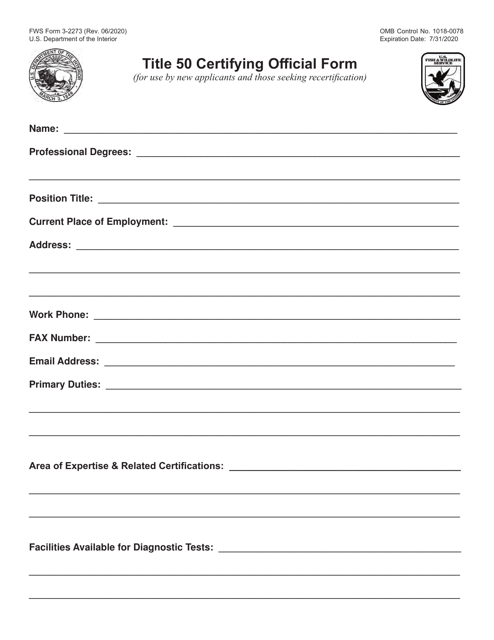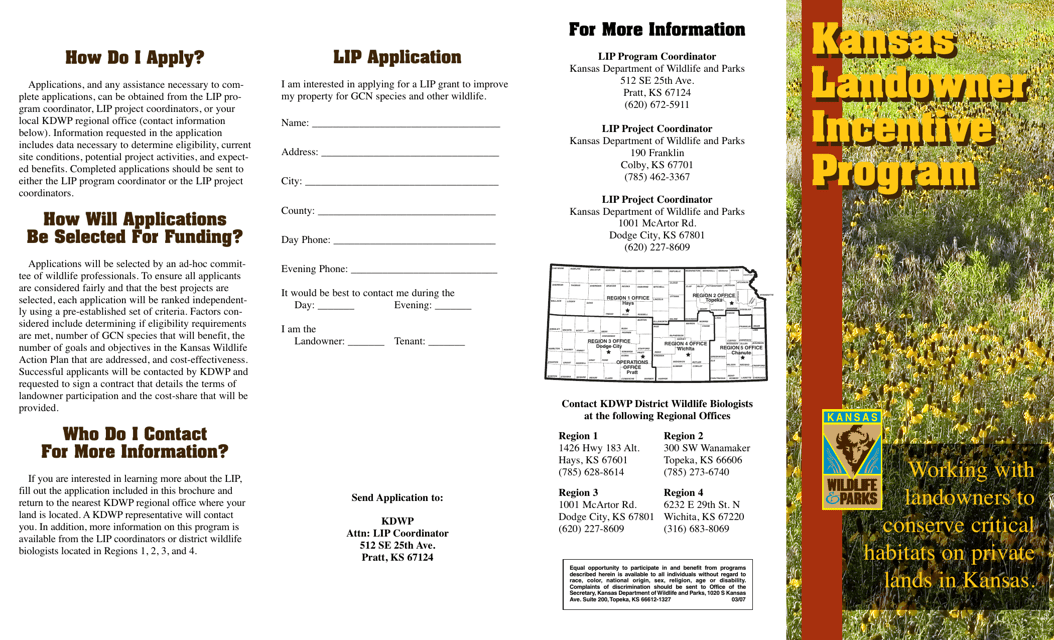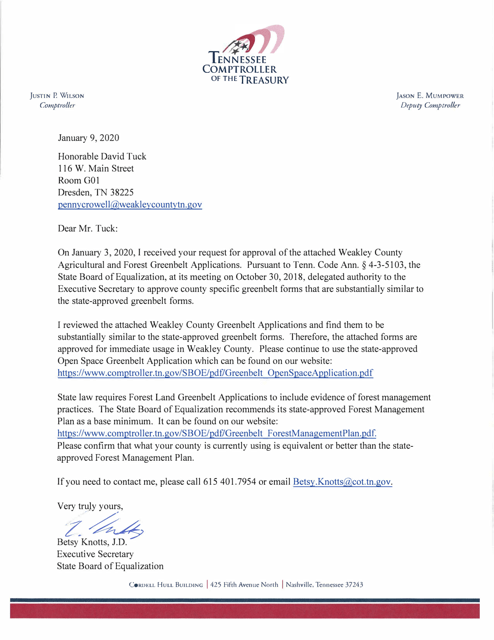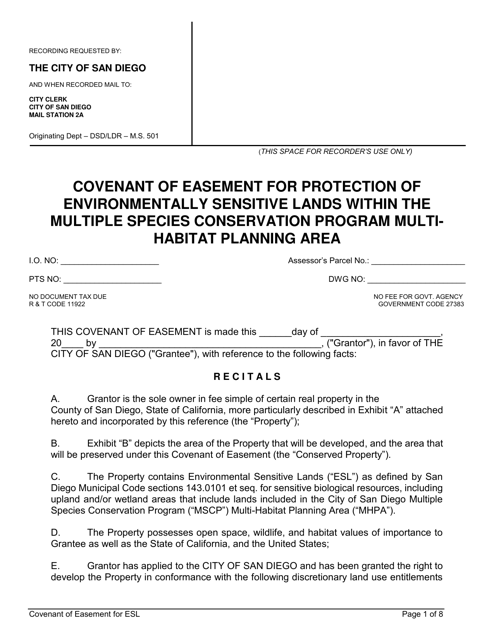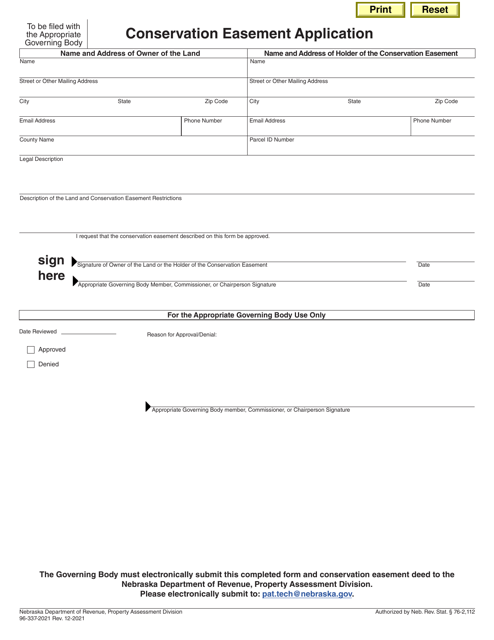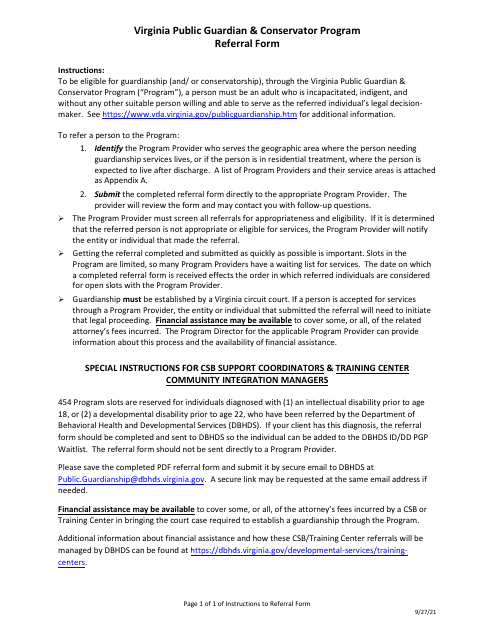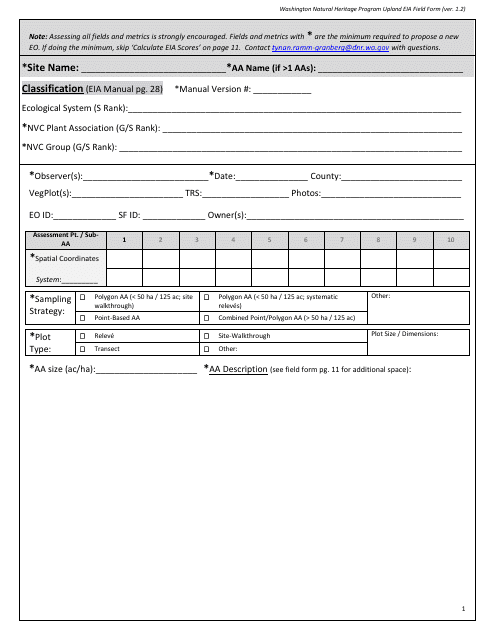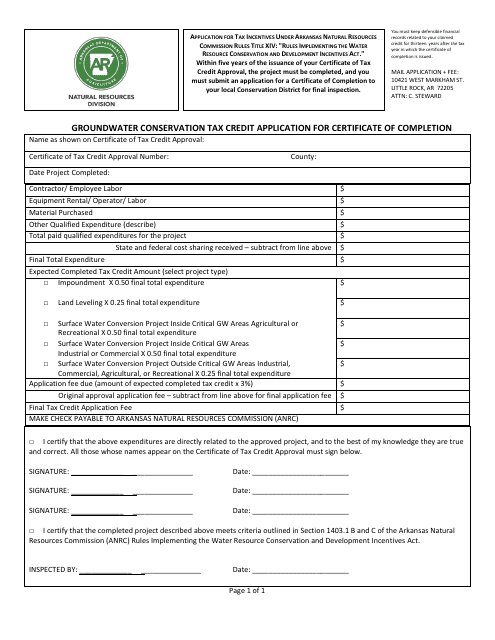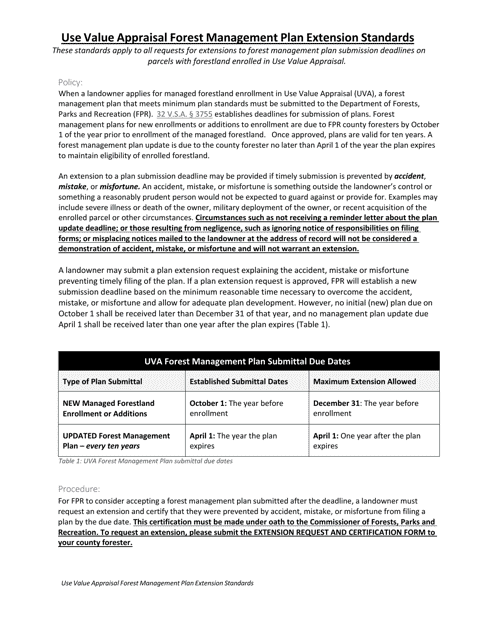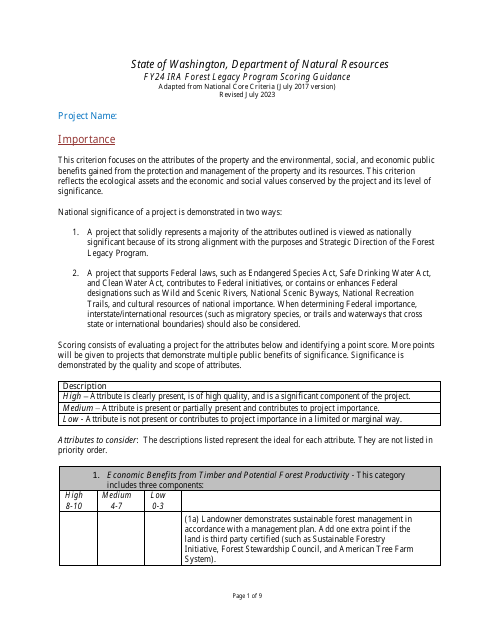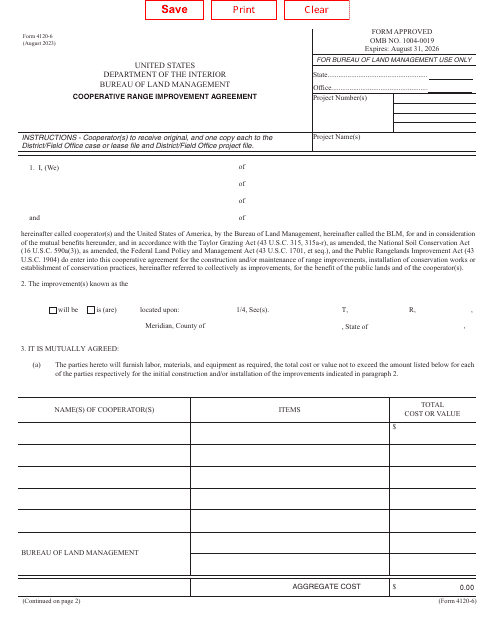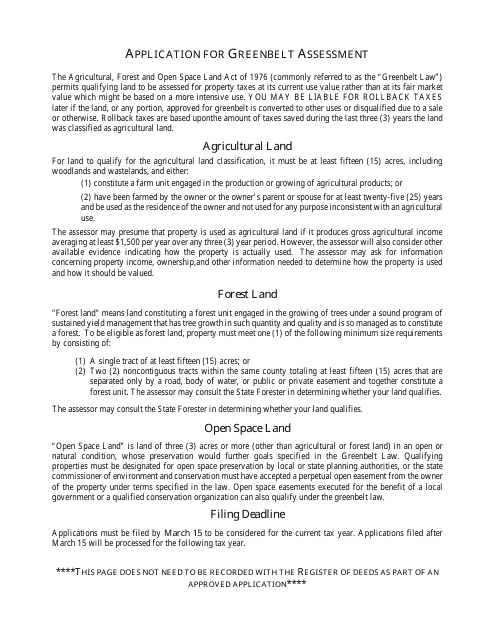Conservation Programs Templates
Conservation Programs
Looking to make a positive impact on the environment? Our conservation programs are designed to facilitate and encourage sustainable practices and preservation efforts across the United States and Canada. Whether you're a landowner, an agricultural professional, or a guardian or conservator, we offer a range of resources and support to help you contribute to the protection of our natural resources.
Our extensive collection of documents provides valuable information and assistance for various conservation programs. These programs aim to safeguard the land, promote responsible farming practices, and preserve the welfare of vulnerable individuals. With the alternate names of "conservation programs," "conservation program," or "conservator program," we offer a comprehensive range of resources to address your specific conservation needs.
Explore our documents, such as the Landowner Application Form for the Permanent Conservation Easement Program in Michigan, which enables landowners to secure permanent conservation easements, ensuring that their properties remain protected for generations to come. In Wisconsin, the Form PR-324 Agricultural Classification Conservation Program Information Request assists agricultural professionals in obtaining vital information to participate in the state's conservation program.
For those involved in guardianship and conservatorship matters, the Referral Form for the Virginia Public Guardian and Conservator Program provides a pathway for individuals to access legal support and resources. Meanwhile, the Forest Management Plan Extension Request and Certification for the Use Value Appraisal Program in Vermont allows landowners to apply for an extension to their forest management plans, ensuring continued participation in this beneficial conservation initiative.
If you're a forest landowner in Tennessee, our Application for Greenbelt Assessment - Forest Land provides the necessary information and guidance to apply for the state's assessment program, which offers financial incentives for conserving forested lands.
These documents, among many others in our conservation programs collection, serve as valuable tools to streamline your conservation efforts, connect you with relevant initiatives, and usher in a greener and more sustainable future.
Documents:
17
This Form is used for landowners who want to apply for the Permanent Conservation Easement Program in Michigan.
This form is used for applying to the Multi-Family Conservation Program in New York City, which promotes energy efficiency in multi-family buildings.
This document provides a profile of a conservation program provider in Arizona that focuses on non-per capita initiatives.
This form is used for requesting information about the Agricultural Classification Conservation Program in Wisconsin.
This type of document is an application form for the Landowner Incentive Program (LIP) in Kansas. The LIP is a program that provides incentives to landowners for conserving and managing wildlife habitats on their property.
This document is for applying for a Greenbelt assessment in Weakley County, Tennessee. Greenbelt assessment is a program that aims to provide property tax relief for landowners who maintain their land in agricultural or forestry use. This application allows landowners to be considered for reduced property taxes based on the greenbelt assessment criteria.
This document is used for creating a covenant of easement to protect environmentally sensitive lands within the Multiple Species Conservation Program Multi-Habitat Planning Area in the City of San Diego, California.
This document is used for applying for a conservation easement in Nebraska. A conservation easement is a legal agreement between a landowner and a land trust or government agency that permanently limits uses of the land to protect its conservation values.
This Form is used for making referrals to the Virginia Public Guardian and Conservator Program in Virginia.
This form is used for conducting Environmental Impact Assessments (EIA) in Washington as part of the Washington Natural Heritage Program.
This document is an application for a tax credit for completing groundwater conservation projects in Arkansas.
This document is a request for an extension of a forest management plan in Vermont. It includes certification for participation in the Use Value Appraisal Program, which provides property tax benefits for landowners who implement sustainable forest management practices.

